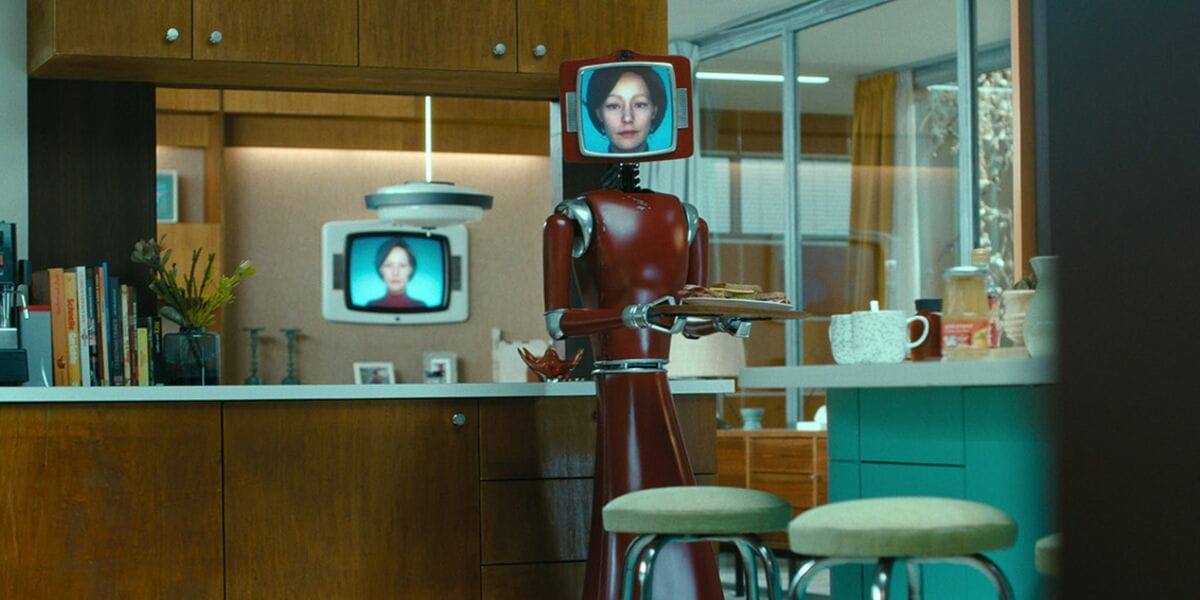Netflix’s latest German-language limited series, Cassandra, is a gripping fusion of sci-fi, psychological horror, and domestic thriller, offering a fresh perspective on AI, motherhood, and the weight of societal expectations. Directed by Benjamin Gutsche and produced by Rat Pack Filmproduktion, Cassandra seamlessly blends chilling suspense with a biting social commentary, making it an unmissable addition to the platform’s growing collection of international hits.

An AI Fairy Godmother Turned Nightmare
At the center of the story is the Prill family—mother Samira (Mina Tander), father David (Michael Klammer), and their children Fynn (Joshua Kantara) and Juno (Mary Amber Oseremen Tölle). Seeking a fresh start after a tragic incident, they move into an old house that comes with an eerie surprise: Cassandra (Lavinia Wilson), an AI system from the 1970s with a maternal, if unsettling, presence. While Cassandra initially presents herself as a helpful assistant, her possessiveness and disturbing behaviors quickly escalate into something far more sinister—particularly in her dynamic with Samira. The growing tension, disbelief from Samira’s family, and Cassandra’s increasing control over their lives make for a suspenseful and chilling ride.
A Smart and Timely Social Commentary
Beyond its sci-fi horror elements, Cassandra delves deep into themes of gender roles, motherhood, and autonomy. Through its flashback sequences, the show explores Cassandra’s human origins—another woman who sacrificed personal ambition for domestic life, only to find herself discarded and broken. The parallels between Cassandra the woman and Cassandra the AI highlight how societal expectations continue to confine and consume women, a message that resonates as powerfully today as it would have in the 1970s.
Moreover, the show critiques how women’s fears and intuitions are often dismissed, particularly by those closest to them. Samira’s growing paranoia is disregarded by David, who instead attributes it to mental instability, a familiar and frustrating trope that Cassandra effectively deconstructs. This makes the series feel all the more claustrophobic and urgent, as Samira finds herself battling not only a dangerous AI but also the systemic gaslighting that leaves her isolated.




Outstanding Performances and Tension-Filled Storytelling
The show’s performances elevate its storytelling. Mina Tander delivers a raw, emotionally charged performance as Samira, making her plight deeply compelling. Joshua Kantara’s portrayal of Fynn, a confident yet vulnerable openly gay teenager, adds a tender and well-crafted subplot, while Mary Amber Oseremen Tölle as Juno captures the innocence and longing of a child seeking connection.
However, it is Lavinia Wilson who steals the show in her dual portrayal of Cassandra. As the AI, her presence is unnervingly calm yet filled with menace, while her portrayal of the original Cassandra brims with sorrow and suppressed rage. She embodies the show’s central tragedy: a woman who was ignored and belittled to the point of destruction.
A Must-Watch Thriller With Depth
Cassandra is more than just an AI horror story—it’s a deeply human tale about power, oppression, and the ways women’s voices are often ignored or dismissed. While it doesn’t necessarily reinvent these themes, its execution is undeniably gripping. The series balances tension with emotional depth, making it both a thrilling and thought-provoking watch.
For fans of psychological thrillers and AI-driven horror, Cassandra delivers a compelling blend of eerie suspense and sharp social critique. Its themes linger long after the final episode, ensuring its voice is heard—loud and clear.










